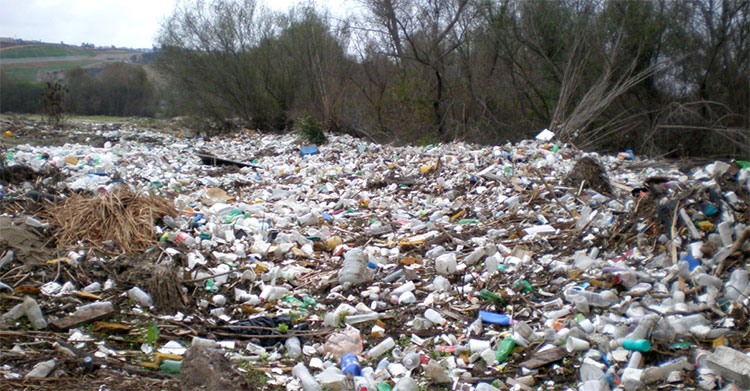WHO EMRO | Addressing Plastic Pollution

World Environment Day 2025 is set to take place on June 5, with a strong focus on combating plastic pollution. The United Nations Environment Programme (UNEP) is leading this year’s campaign, calling on nations, organizations, and individuals to unite in their efforts to protect the planet. While plastics offer certain advantages, their increasing prevalence poses serious risks to both environmental and human health.
The Growing Threat of Plastic Pollution
Plastic pollution has become a global crisis, contaminating vital resources such as water, food, and air. As plastics degrade, they release microplastics that infiltrate the food chain, posing health risks to humans. Recent studies have shown alarming levels of microplastics in human arteries, lungs, brains, and even breast milk. The projected global consumption of plastic is expected to reach 516 million tonnes in 2025, with estimates suggesting it could exceed 1.2 billion tonnes annually by 2060 if current trends continue. This surge in plastic use is alarming, given that environmental factors contribute to approximately 13 million deaths worldwide each year, with air pollution being a significant factor.
The Economic and Health Costs of Pollution
The economic implications of plastic pollution are staggering. The health and economic costs associated with air pollution alone are estimated to be around $2.9 trillion. This figure highlights the urgent need for action to mitigate the effects of plastic waste on both human health and the environment. On World Environment Day, communities are encouraged to advocate for sustainable solutions to tackle plastic pollution. While recycling has historically been a primary method for managing plastic waste, current statistics reveal that only 9% of plastics produced globally are recycled. Furthermore, only 21% of plastics are deemed economically recyclable, meaning the costs of recycling often outweigh the value of the materials recovered.
Transitioning to a Circular Economy
Addressing plastic pollution presents numerous benefits, including cleaner oceans, healthier ecosystems, and improved climate resilience. Transitioning to a circular economy for plastics is crucial for achieving sustainability. This shift requires a fundamental rethinking of how plastics are designed, produced, and utilized. Products should be created with multiple uses in mind, emphasizing recycling and reusability. Engaging stakeholders across the plastics value chain is essential for this transformation, ensuring that the transition is just and inclusive, particularly for waste pickers and communities affected by plastic pollution.
International Efforts and Future Solutions
Solutions to combat plastic pollution are already in motion. In 2022, the UN Environment Assembly initiated negotiations for a legally binding international instrument aimed at addressing plastic pollution, particularly its impact on marine environments. Since then, five sessions of the Intergovernmental Negotiating Committee (INC) on Plastic Pollution have convened to work toward a comprehensive agreement. As World Environment Day approaches, it is crucial for individuals and communities to seize this opportunity to collaborate in the fight against plastic pollution, ensuring a healthier planet for future generations.
Observer Voice is the one stop site for National, International news, Sports, Editor’s Choice, Art/culture contents, Quotes and much more. We also cover historical contents. Historical contents includes World History, Indian History, and what happened today. The website also covers Entertainment across the India and World.
Follow Us on Twitter, Instagram, Facebook, & LinkedIn

